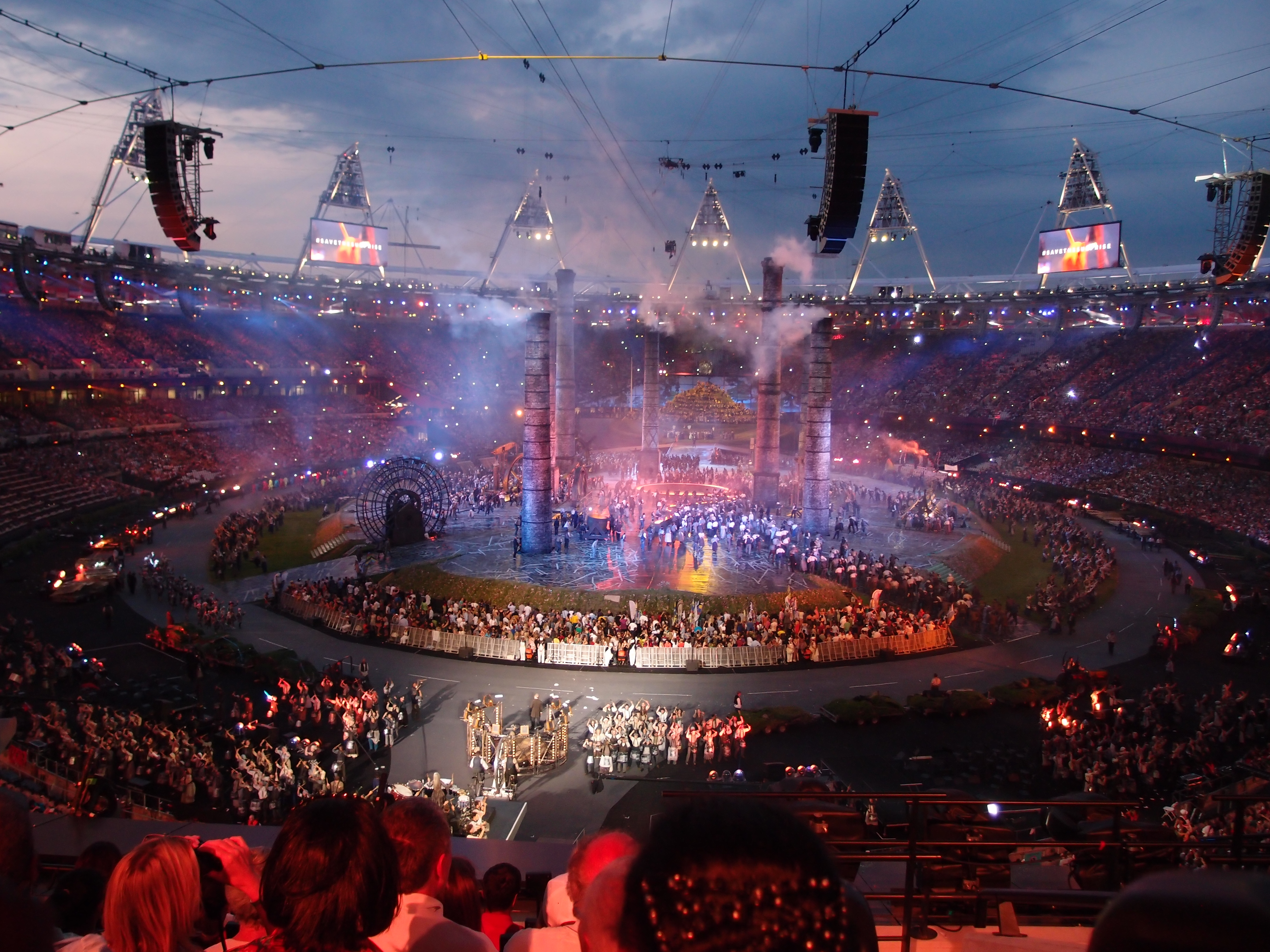
September 9, 2012, by Brigitte Nerlich
Making people happy: Science, technology and engineering in the summer of 2012
Over the summer I have been watching, sometimes reluctantly, bits of the Jubilee celebrations, bits of the Olympics and, yesterday evening, bits of the Last Night of the Proms (8 August, 2012), where the Proms choir did a mass Mobot, a new gesture popularised during the Olympics. This evening many people will be watching the closing ceremony of the Paralympics. This made me think…
This summer has seen some spectacular scientific achievements, such as Curiosity landing on Mars and scientists at CERN finding evidence of the Higgs Boson. However, this summer has also been full of more mundane and hidden feats of science, technology and engineering without which various spectacular events could never have happened: the Queen’s Diamond Jubilee Pageant, the Olympics, including two opening and closing ceremonies, the BBC Proms and so on. These events made (some) people happy and united thousands in enjoyment, laughter and in tears.
Enhancing pleasure
Technological and engineering achievements not only brought together people (who watched ceremonies, performances and performers), but also the arts and sciences, thus bridging what is normally called a ‘divide’ or separated as ‘two cultures’. This was best encapsulated by Sir Kenneth Branagh, dressed as Isambard Kingdom Brunel, reading from Shakespeare’s ‘The Tempest’ at the Olympic opening ceremony. And yet, both the science and engineering that went into this summer’s events and the constant science-culture mixing, all happened so effortlessly and seamlessly that it can easily be overlooked and taken entirely for granted.
So what human and natural sciences, technologies, arts and crafts made this summer so special and heightened people’s happiness? Here is just a brief and entirely subjective selection of some of them: ship and boat building, history, bridge engineering, sports science, psychology, sound engineering, data management, dance, imaging technology, literature, the internet, stage management, drama, track engineering, crowd management, logistics, design, film, photography, sports technology, physics, mechanics, architecture, epidemiology, construction, light technology, broadcasting, veterinary science, computer technology, data mining, music, pyrotechnics, comedy, civil engineering, structural engineering…, fashion, costume design, sports audio engineering, urban planning and much much more.
The smooth coordination of all these forms of expertise from the arts, humanities, and STEM (science, technology, engineering and maths) subjects, created truly spectacular experiences and enabled people to appreciate the various events over the summer, whether they were at the events or at home around the world (and I am not saying everything was to everybody’s taste!). Science, technology and engineering enhanced the (artistic and sporting) performances that went on during the summer and also enhanced the pleasure people had in participating in them.
Enhancing performance
Performance enhancement was of course also discussed during the Olympics. Sport scientists and trainers made every effort to enhance the performance of athletes and other sports people, without falling into the trap of cheating through doping, prosthetic engineering and so on. Scientists and engineers tried to make performers better than you and me and especially better than other competitors, but they tried not to make them ‘superhuman’ – the title of an exhibition at the Wellcome Trust that ran all summer alongside the Olympics and is still running until 16 October.
Now, while creating superhumans through science and technology usually triggers soul-searching and fear about science and scientists over-reaching themselves, the events this summer, from the pageant to the proms via the Olympics, showed how science, engineering and technology can enhance people’s lives positively in a more modest and humble fashion.
Making science public
There were two ways that science and engineering became public during the summer, in a more hidden way, by helping to create public pleasure, but also, and this should not be forgotten, in a more overt way, through (artistically) celebrating science and engineering achievements (which itself contributed to public pleasure). The opening ceremony of the Olympic games commemorated the industrial revolution and Sir Tim Berners-Lee, inventor of the web, made an appearance. The opening ceremony of the Paralympic games focused on British science and innovation, with the physicist Stephen Hawking taking the lead. It was a good summer all round for science, engineering, culture, sport and publics.
Image: wiki commons

[…] earthquake in Italy and the questions it posed about scientific advice, the Rio plus 20 summit, the Olympics and so […]